Message From the Division of Student Affairs
Dear Students,
The Harvey Mudd College years are an important time for personal development and intellectual growth. It’s a time for exploring and experimenting, for living in a diverse community bound by the Honor Code and for strengthening one’s individual ethical core and leadership abilities. As a college, we encourage students to engage in all of the opportunities available to them during their time here, while also promoting autonomy and adult responsibility. In partnership with you, we strive to create a campus environment where students can find themselves on their own terms, both personally and academically.
The Division of Student Affairs, which includes offices for residential life, campus life, community engagement, student health and wellness, institutional diversity and career services, plays a significant role in crafting and supporting the campus community and in promoting students’ personal, social and academic development and wellness. We provide programs and services that complement, support and enhance the mission of the College and are strongly tied to academics through robust faculty participation in our programs and through our collaboration with the associate dean for academic affairs. We have created this family handbook to share answers to common questions, provide insight into the programs and resources available and to clarify how we can work together to ensure your student takes full advantage of the opportunities and resources available at Harvey Mudd College. For your convenience, we have also provided links so that you can access information online.
We hope you enjoy this handbook and find the information interesting and useful. We look forward to strengthening our relationship with your student, and you, over the coming years.

Jon Jacobsen
Vice President for Student Affairs and Dean of Students
Division of Student Affairs Mission Statement
Educating Ethical Leaders
We believe the Harvey Mudd College mission statement enjoins us to educate ethical leaders who are committed to the well-being of society and the planet. For this reason, we focus our work around three concepts: Ethics, Care, Leadership.
Ethics
The Honor Code and the College’s mission statement make it clear that teaching, learning and living an ethical life should be at the heart of the Harvey Mudd student experience. DSA programs create opportunities for students to
- explore, express and develop their own ethical commitments
- discuss how they and others live the Honor Code in dealing with classes, roommates, friends and the larger Harvey Mudd community
- learn about the ethics of their future professions.
Care
Students often say that taking care of each other is a central value of the student culture. The founders of the College intended that its students would become leaders who care for their local and global communities and the planet. DSA programs will create opportunities for students to
- understand their options and responsibilities as bystanders
- increase their understanding of, and empathy for, students whose experience of life is different from their own
- engage in meaningful work to benefit the College community, the local community that surrounds us, the global community and the planet.
Leadership
Leadership is at the core of the mission statement. Being a visible campus leader is only one of many opportunities for leadership. DSA programs will create opportunities for students to
- find their own leadership style and strengths
- understand that one doesn’t have to be a “leader” to practice leadership
- learn to recognize leadership moments in many types of situations.
Harvey Mudd College’s Aspirations
Linking these concepts are three themes that express Harvey Mudd College’s aspirations for itself and the world: Diversity, Community Engagement, Wellness.
Diversity
Broadening STEM education to include more women, underrepresented groups and people with disabilities will help to expand the nation’s highly skilled professionals while taking advantage of the rich variety of perspectives within the population. “A diverse STEM workforce is a competitive advantage that the U.S. is still struggling to develop. Higher education institutions that learn how to expand their reach to these groups have a strong advantage with respect to global competency as their graduates will be better prepared to work with the diverse people who define and interpret today’s scientific and technological problems in many different ways.” (From Harvey Mudd College’s Strategic Vision, 2007)
Community Engagement
“Addressing the major global challenges, or even merely working in global science and engineering industries, requires individuals who are able to work with people from other cultures, and who have the language, organizational, leadership and communication skills to plan and carry out projects that may span nations, continents and oceans. … [At the same time] Harvey Mudd College’s proximity to many high-need and ethnically diverse neighborhoods in Southern California places it in a unique position to make a difference in these communities while also providing Harvey Mudd students with more opportunities for community engagement.” (From Harvey Mudd College’s Strategic Vision, 2007)
Wellness
Harvey Mudd College is dedicated to nurturing and developing the whole person and to supporting personal growth and the acquisition of skills in areas such as creativity, leadership, teamwork, ethics and communication, in both curricular and co-curricular endeavors.
“Encouraging growth in these areas is important for all members of our community. For our students, these skills are necessary in order to become effective leaders in their future careers and in all other areas of life.” (From Harvey Mudd College’s Strategic Vision, 2007)
Student Affairs Staff
Offices located in Platt Campus Center

Jon Jacobsen
Vice President for Student Affairs/Dean of Students
909.621.8125
jacobsen@hmc.edu

Leslie Hughes
Assistant Vice President for Student Affairs
909.621.8301
lhughes@hmc.edu
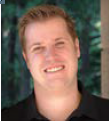
Michael Edwards
Assistant Dean for Residential Life
909.621.8794
michael_edwards@hmc.edu
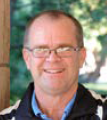
Chris Sundberg
Associate Dean for Campus Life
909.621.8757; 607.1479
csundberg@hmc.edu
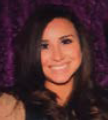
Evetth Gonzalez
Assistant Dean for Campus Life
909.607.1479
evgonzalez@hmc.edu

Dean Q
Associate Dean for Student Health and Wellness
909.607.4101
deanq@hmc.edu

Michelle Harrison
Assistant Dean for Health and Wellness
909.621.8013
michelle_harrison@hmc.edu
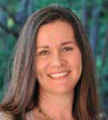
Gabriela Gamiz
Director of Community Engagement
909.607.4575
gabriela_gamiz@hmc.edu
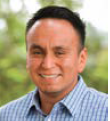
Danny Ledezma
Associate Director of Community Engagement/ Homework Hotline Coordinator
909.607.4015
dledezma@hmc.edu
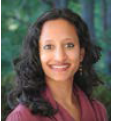
Sumi Pendakur
Associate Dean for Institutional Diversity
909.607.1865
sumun_pendakur@hmc.edu
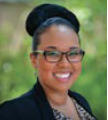
Kristina Londy
Assistant Dean for Institutional Diversity
909.607.3470
klondy@hmc.edu
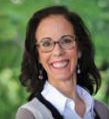
Kim Nykanen
Administrative Assistant
909.607.7916
kim_nykanen@hmc.edu

Judy Fisher
Director of Career Services
909.607.2972
judy_fisher@hmc.edu

Paul Hardister
Associate Director of Career Services
909.607.7826
phardister@hmc.edu

Elizabeth Saezler
Program/Employer Relations Coordinator Career Services
909.621.8091
elizabeth_saezler@hmc.edu
Proctors and Mentors
Students take an active role in overseeing and preserving the residential aspect of Harvey Mudd culture by becoming dorm leaders. These positions give students the opportunity to manage the dorm’s social and individual needs.
Proctors support the residential life program by developing a sense of community and are trained in crisis intervention, counseling, first aid, CPR, conflict mediation, issues of diversity and multiculturalism, event programming, fire safety and disaster preparedness. They are available to discuss personal or academic matters, help students figure out what to do or who to see to resolve a problem and give students access to their rooms when they are locked out.
Mentors support the residential life program by developing a sense of community and serving as peer advisors for both first-year students and sophomores regarding personal and academic issues. They are also instrumental in the facilitation of the Orientation program and work with the proctors to welcome and integrate first-year students into the residence halls and the Mudd community.
To see a list of the current proctors and mentors, visit the dorm staff page on the HMC website: hmc.edu/student-life/student-affairs/dorm-staff.
|